Private, outside buyers to dominate as prices stabilize
If new-car sales plateau or decline, prices will go down, so dealerships will remain attractive to private equity and family-office buyers.
Haig: Money for stock buybacks
Well-capitalized private dealership groups and outside buyers, such as family offices and private equity firms, will dominate buy-sell transactions this year -- as publicly traded retailers dial back, buy-sell advisers predict.
"The public companies, largely because their stock prices have fallen significantly over recent months, are saying their cash is better used buying back stock or buying dealerships other than U.S. auto retail -- England, Brazil and, in Penske's case, commercial-truck operations," said Alan Haig, president of Haig Partners in Fort Lauderdale, Fla.
Stock prices of the six publicly traded new-vehicle dealership groups took a severe hit in recent months, implying that Wall Street expects lower profits from them. Some of the industry's most prominent dealership buyers have said they expect to do fewer deals this year because they are unwilling, in the face of slipping profits, to pay prices that would presume a continuation of 2015's robust profit margins. And sellers aren't ready to lower their asking prices, advisers said.
"The publics evaluate every transaction against their own stock price, and if it economically makes more sense to buy back their own stock, they will do so," said Erin Kerrigan, managing director of Kerrigan Advisors in Irvine, Calif. "That creates more opportunity for new entrants to make some big transactions."
Last year, new entrants represented nearly a third of the buy-sells done. Their tally was four times the number bought by the six public dealership groups, Kerrigan said.
In Kerrigan's Blue Sky Report for 2015, she said 558 franchises were sold last year. Outside buyers bought 165, private dealership groups 355 and the publics 38, or 6.8 percent.
The Haig Report® said the public companies spent $773 million last year buying U.S. dealerships, down from $1.5 billion in 2014. The 2014 figure was inflated by Lithia Motors Inc.'s purchase of DCH Auto Group.
Kerrigan said another deal that size, while not out of the question this year, is unlikely. "Publics will be in the $500 [million] to $800 million acquisition spending range this year. I don't think they'll go over that," Kerrigan predicted. "It just depends where their stock price will be."
Most medium-size private dealership groups have a war chest of cash from years of vibrant car sales to do deals, and they can borrow money at cheap interest rates. Haig noted that the average dealership acquisition, if no debt is involved, delivers a 17 percent return on investment. "That's a better return than keeping money in the bank, so we think these private dealership groups will want to grow," Haig said.
If new-car sales plateau or decline, prices will go down, so dealerships will remain attractive to private equity and family-office buyers.
"A year to a year and a half ago, they were just coming onto the stage," Haig said. "These groups want to continue to grow, and they are smart investors who will be disciplined with their offers."
Domestic demand
Many outside buyers want domestic brands, whereas the private dealership buyers likely will want the German luxury brands, Kerrigan said. That's because a return on investment is "a much bigger driver of valuation than a simple blue-sky multiple" for outside investors, Kerrigan said.
She said outside buyers look at the total investment, including real estate.
"They ask, "What's my return on this?' They don't say, "OK, it's a BMW store, so I am going to give you a 10-times multiple. Rather, I need a 15 percent pretax return on my investment, and I will pay this much for this franchise and the real estate based on my return expectations,'" she said.
For that reason, domestic brands are attractive. They are priced to offer a superior return on investment vs. that of most luxury brands, Kerrigan said.
"The new entrants are buying very few luxury stores," Kerrigan said. "Luxury franchises are so incredibly valuable, but the [constellation of] people with the capital to pay $100 million for a few stores is not a big group.
"The new entrants will say, "Why would I spend $100 million on two luxury stores when I could get several domestics and earn a much higher return on investment?'"
Kerrigan said luxury stores will be sold, but to private dealership groups that see a luxury store as a strategic asset to their portfolios of stores.
Said Haig: "We're seeing private buyers being as aggressive and, in some cases, more aggressive than the public companies have been over the last six months" in bidding for luxury brands.
Brumos Automotive in Jacksonville, Fla., for example, agreed to sell its two Mercedes-Benz stores, one Porsche store and two Lexus stores to Fields Auto Group in Glencoe, Ill., in a deal scheduled to close Friday, April 1, Haig said.
"We offered it to a limited number of leading buyers, including some public companies, and our client chose the offer the Fields Group made," Haig said. "It's an example where private buyers are making so much money, and lenders are eager to supply them with cheap capital, that they are on equal footing with public companies when it comes to bidding for dealerships."
Likewise, Haig said, there were public companies interested in buying Morrie's Automotive Group in Minneapolis last year, but Morrie's chose the offer from Fremont Private Holdings, which is an investment arm of the Bechtel family. The family owns construction and engineering giant Bechtel Corp.
Tipping point?
Kerrigan and Haig expect to see more dealerships for sale this year, but sellers' price expectations will remain high, resulting in some deals not getting done because the buyer's willingness to pay a premium, especially on pro forma earnings, is going down, said Kerrigan. On the other hand, she said, "The key here is the financing for acquisitions is extremely attractive."
Haig warned that sellers who are holding out for a "super premium on pricing will not be successful." But with so many buyers coming to market, the supply-demand balance won't tip toward a buyer's market yet, either, he said.
"But we're probably closer to equilibrium," Kerrigan said. "Before, sellers had so much selling power. Things are more realistic. The extreme premiums are coming down."




